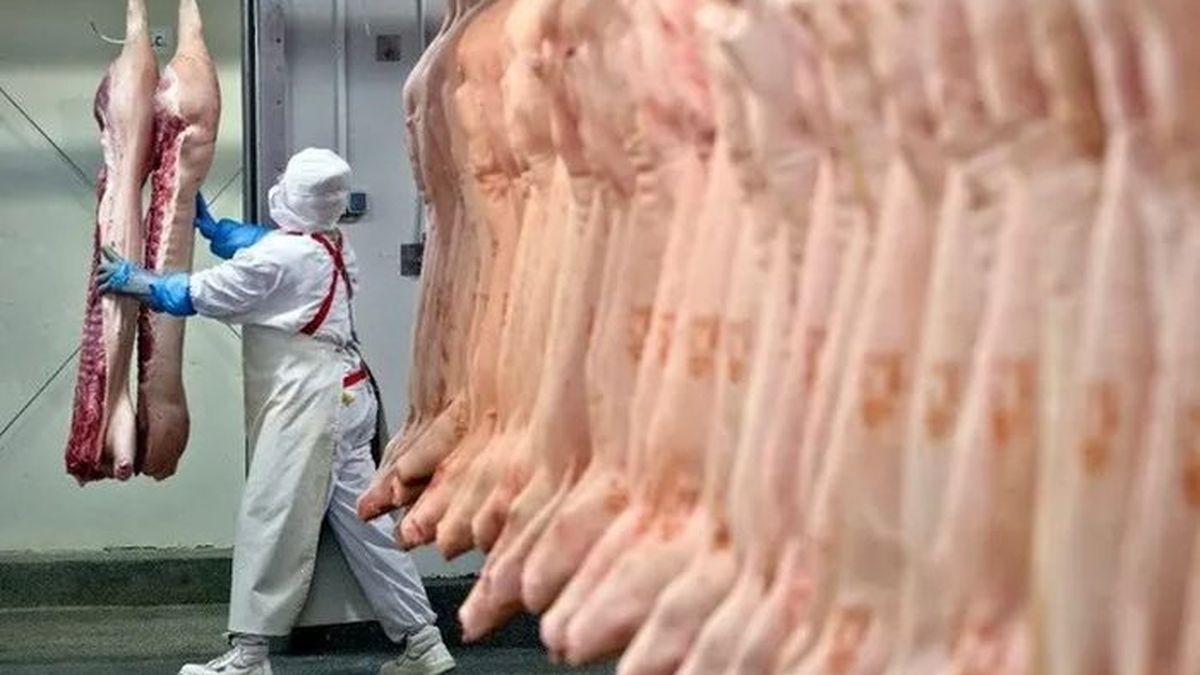Rainy El Niño is consolidated. Sectoral groups are activated in Congress. Differences despite the delay in the Seed Law. The union check on dairy continues. Freight rates go up more. Uruguay can also now export with bone.
…That while Paraguay and Uruguay already have authorizations to export “bone-in” meat to the precious Israel market, Argentina is just “preparing the papers” to request that authorization, even though it has been a supplier to that destination for years. Through an official note from National Agri-Food Health and Quality Service (Senasa) On Tuesday (1/16), “Argentina began the process to open the Israeli market for kosher bone-in beef,” as specified by the organization itself. He also highlights that Israel is a very important market for Argentina, since “it is the third buyer of products of animal origin”. The issue may also have implications with the south of the country, since there is a strict (internal) prohibition on marketing “bone-in” meat, which also makes the product significantly more expensive for consumers. Now, with the eventual Israeli easingthe rigid maintenance of internal barriers could be considered a contradiction, even more so when the sanitary status has been maintained for 18 years now, and the entire region registers significant progress in terms of health in general, and foot-and-mouth disease in particular, to the point of that several of the Neighboring countries are already directly considering stopping vaccinations (with the immediate alert system ready, and the vaccine bank available, issues in which the country also remains behind). Others, however, better they encourage a regional movement to change the maximum statusdirectly to a “foot-and-mouth disease-free country”, regardless of whether it is “with” or “without” vaccination, given the progress recorded in the matter in Mercosur. “The requirement is absurd, it would be the same as saying that to achieve the maximum health status in humans, for example, in covid, “We should not use the available vaccines,” criticized a senior former Senasa official, who has been advocating for years to seriously address this issue. management at the OIE (International Organization of Epizootics).
The content you want to access is exclusive to subscribers.
…that, as progress is made in the analysis of the new official proposals entered into the Congress via mega DNU and “omnibus law”, broader are the sectors affected in one way or another, generating complaints and rejections. In some cases due to obvious oversights or errors (as in the issue of fishing), in others because the conditions of production and/or marketing would be changed, and this provokes the reaction of the groups that defend “acquired rights.” In this scenario, the statement from three of the four entities of the Agricultural Liaison Tableregarding the issue of seeds, immediately revealed the differences since Coninagro, which brings together the cooperatives, did not adhere to the rejection of the other entities that considered “the proposal to join UPOV-91 to be inopportune” (international system for the protection of breeding). of plant varieties that recognizes the intellectual property rights of breeders), and asked “remove it from the Bases (omnibus) Bill” until “addressing a comprehensive update of the Seed Law”. The issue, however, is already more than two decades behind schedule, without the sector itself reaching an agreement and/or proposal linked to the intellectual property of seed breeders which, in the official case, has INTA as one of its most recognized exponents. The question was leading to the gradual withdrawal of several companies from activity in Argentina (the largest ones retreated to Brazil), and the continuous loss of country’s access to cutting-edge seeds worldwide, with the consequent permanent drop in yields. At the same time, although until now the most directly affected of the large crops is soybeans (but there are others as well), the marketing map was significantly altered since the “free own use”by producers, highly defended by some organizations, and which emerged when practically only varieties were sold (there were no hybrids, much less transgenic) led to a generalization of the “white bag” (uncertified seed) that around 80% of the total seed marketwhich shows the very high deviation from the intellectual property guarantee standards, but also the strong tax avoidance that is recorded in the matter.


…that, while the rains causing excesses in some regionsbut until now generally favoring the development of summer crops, the international market continues to show variable, but very far from the records of 1.5-2 years agoas seen this short week, due to the holiday of Monday in Chicago (for the anniversary of the birth of Martin Luther King). And, while in Brazil There were also copious rainfall over the last weekendin Argentina “very important accumulations are observed in the south and center of Santa Feand also in part of the east of Cordova. We are talking about between 50 and 70 millimeters, until 8 in the morning (on Tuesday),” commented Cristian Russo, specialist in the Strategic Guide, of the Rosario Stock Exchange. Among the localities with the highest amount of rainfall recorded, the following stand out: Clason with 60 mm, Zavalla 58 mm, Rosario 52 mm and Guatimozín 50 mmalthough there was rainfall above 100 mm in other regions of the coast and north of the country. But, although insects, diseases and weeds continue to make it difficult for producers to complete the planned plantings, official progress also forces other statements and complaints that include from the presentation of the Tucumans of Apronor due to the withholdings on production in that area, to the claims for the strong increases in transportation, which caused differences especially in the province of Buenos Aires with the head of the Transportation area, Jorge D´Onofrio. The milling company also protested Agriculture. Through a document, the Chamber that brings together mills from Santa Fe, Córdoba, Tucumán and Buenos Aires, “urgently” demanded the removal of export duties on wheat flour. “Argentine milling has the certain possibility of becoming a pillar of the country’s economic recovery, since it has a installed idle capacity of approximately 50%”, they pointed out. The demands were added to other protests such as those that the dairy activity has been registering with another dairy company hampered by union problems, while the growing organization “anti-blockades”, that nuclearize companies that suffer this type of action, made a presentation together with 2,000 SMEs from all over the country, in the National Congress.
Source: Ambito




